At the invitation of agricultural authorities in Cambodia, Laos, and Thailand, Mr. Cui Pengwei, Chairman of the Board of Directors of the Chinese Academy of Tropical Agricultural Sciences (CATAS), led a high-level delegation on a technical exchange mission from February 24 to March 5, 2025. The visit aimed to deepen multilateral collaboration with Lancang-Mekong countries in advancing research, innovation, and sustainable development of key tropical crops, including rubber, bananas, and cassava.
Enhancing China-Cambodia Agricultural Ties
In Cambodia, the delegation engaged in high-level discussions with representatives from the Chinese Embassy in Cambodia, the Cambodian Rubber Research Institute, the Cambodian Agricultural Research and Development Institute, and the Prek Leap National Institute of Agriculture. A landmark Memorandum of Understanding (MOU) was signed with Dr. Somany Prum, Director-General of the Department of International Cooperation under Cambodia’s Ministry of Agriculture, Forestry and Fisheries. Witnessed by officials from the Chinese Embassy, Prof. Cui and Mr. Lim Khan Tiva, Director of the Cambodian Rubber Research Institute, jointly inaugurated the CATAS Overseas Tropical Agricultural Science and Technology Center in Cambodia.
Prof. Cui underscored CATAS’s long-standing partnership with Cambodian institutions in joint research, platform development, talent exchange, technical training, and knowledge sharing across critical sectors such as natural rubber, cassava, coconut, pepper, and tropical fruit cultivation. The new MOU and the establishment of the overseas center are expected to bolster practical cooperation, drive high-value production and value-chain upgrades for strategic crops, and advance the China-Cambodia “Fish and Rice Corridor” initiative.
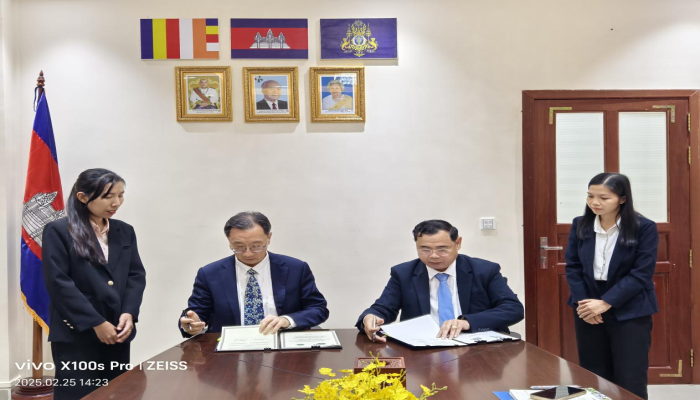
Figure 1 Signing of a Memorandum of Understanding with the Department of International Cooperation of the Ministry of Agriculture, Forestry and Fisheries of Cambodia
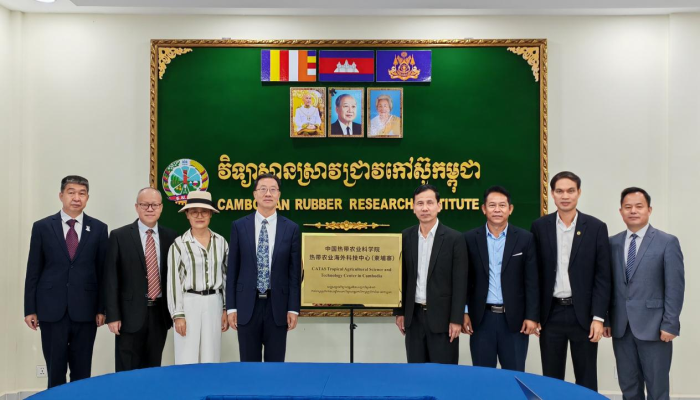
Figure 2 Unveiling of the Tropical Agriculture Overseas Science and Technology Center (Cambodia) of the Chinese Academy of Tropical Agricultural Sciences
Advancing Collaboration with Laos
In Laos, the delegation held productive talks with the Chinese Embassy and the National University of Laos. Together with Mr. Bounchanh Kombounyasith, Director-General of Laos’ Department of Agriculture, they inaugurated the International Joint Laboratory for Agricultural Product Quality and Safety. This facility, co-established by CATAS Analytical Testing Center and the Lao Plant Protection Center, will focus on tropical crop germplasm innovation, rubber harvesting technologies, and food safety standards.
Prof. Cui highlighted CATAS’s role as a national leader in tropical agricultural innovation, emphasizing its robust technological systems and globally recognized achievements. He reiterated CATAS’s commitment to expanding cooperation with Laos in areas such as tropical fruit breeding, sustainable farming practices, and agricultural product certification.
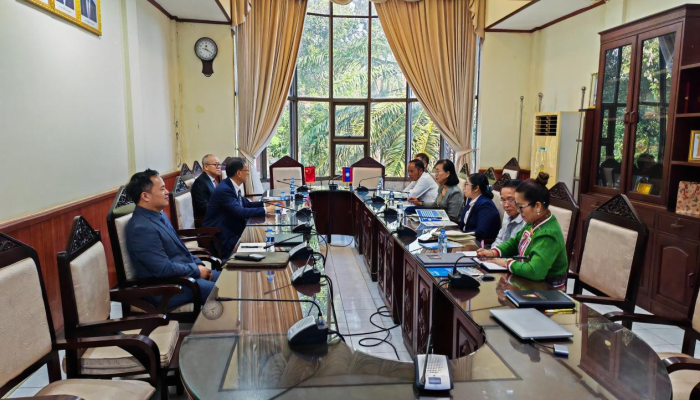
Figure 3 Panel discussion and communication with the National University of Laos
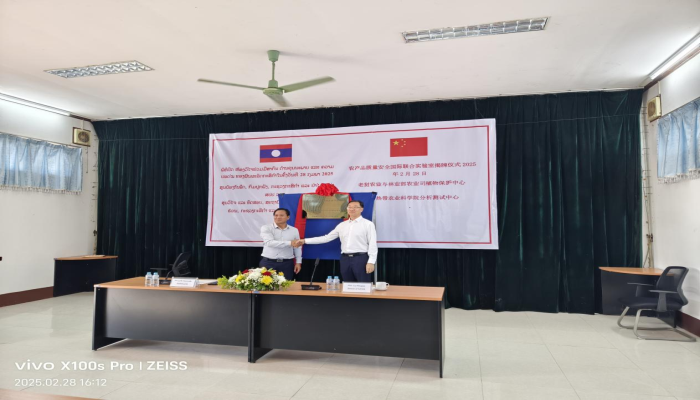
Figure 4 Unveiling the plaque of the joint laboratory with the Department of Agriculture of the Ministry of Agriculture and Forestry of Laos
Deepening Partnerships in Thailand
In Thailand, the delegation met with representatives from the Chinese Embassy, the Thai Rubber Authority, the Department of Agriculture, and Kasetsart University. A strategic cooperation MOU was signed with Kasetsart University to enhance joint efforts in rubber, fruit, and vegetable production. Key projects under the agreement include banana and cassava breeding, processing technologies, and sustainable agricultural practices.
Prof. Cui noted CATAS’s extensive collaborations with Thai institutions over the years and expressed optimism that the new partnerships would elevate Sino-Thai agricultural technology cooperation to unprecedented levels.
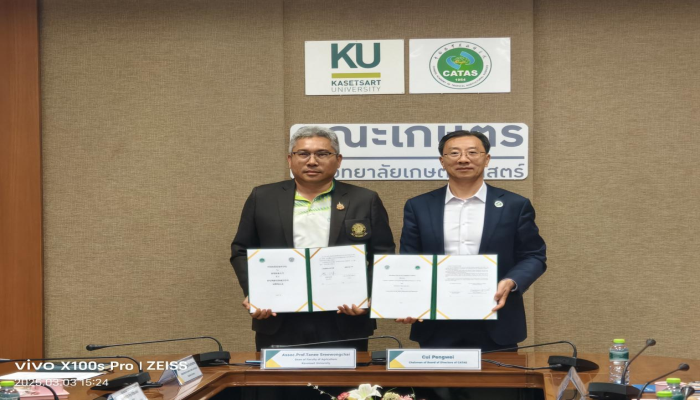
Figure 5 Signing a Memorandum of Understanding with Kasetsart University (Thailand)
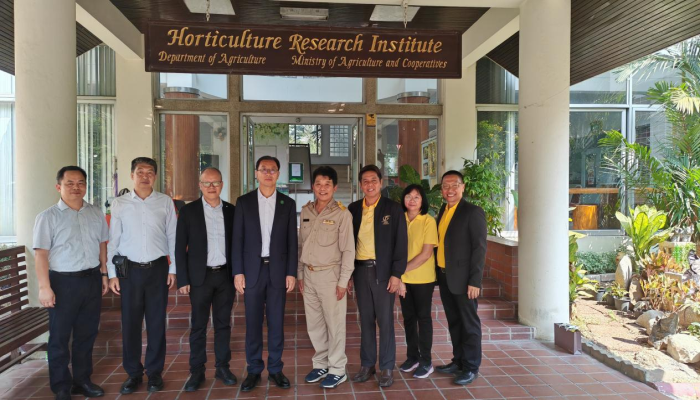
Figure 6 Communication with the Department of Agriculture of the Ministry of Agriculture and Cooperatives of Thailand
Field Visits and Future Prospects
The delegation conducted on-site inspections of major agricultural projects, including Cambodia’s cashew production bases, Guangdong State Farms’ rubber facilities in Laos, Yaozheng Agricultural Banana Plantations, and experimental bases at Kasetsart University. These visits facilitated in-depth technical exchanges with local experts and laid a robust foundation for future joint initiatives.
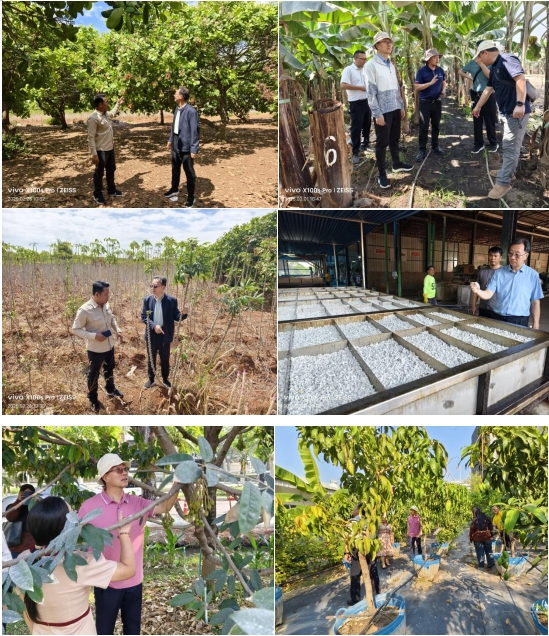
Figure 7 Field research on production bases of cashew nuts, cassava, rubber, bananas and experimental bases of mangoes and durians
Through this mission, CATAS reaffirmed its dedication to fostering innovation-driven growth and shared prosperity across the Lancang-Mekong region, aligning with China’s vision of building a global community of sustainable agricultural development.


